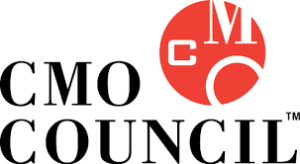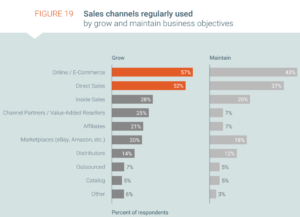Brands & Telcos Must Partner to Deliver Omni-Channel Experience; SMEs Struggling with Digital
by Hugh Williams on 7th Sep 2017 in News

ExchangeWire Research’s weekly roundup brings you up-to-date research findings from around the world, with additional insight provided by Rebecca Muir, head of research and analysis, ExchangeWire. In this week’s edition: Brands and telcos must partner to deliver omni-channel experience; SMEs struggling with digital; and Influencer spend on the up.
Brands & telcos must partner to deliver omni-channel experience
Brands and communications service providers will need to become tightly coupled in order to truly fulfill their shared vision of delivering a more gratifying, valued, and relevant omni-channel experience for customers, finds a study by the CMO Council.

More than 80% of brand marketers surveyed say their brands are extremely, very, or increasingly reliant on global customer connectivity, secure digital communications, real-time customer interaction, and multi-channel content delivery.
Almost half (49%) of non-telco marketers see a potential leadership role for communications service providers to provide brands with an optimised framework for omni-channel engagement. Only 11% do not, and 40% are uncertain.
In contrast, 56% of telco industry marketers believe that non-telco companies are out-performing telco operators and communications service providers in delivering a true omni-channel experience. This compares to one quarter who do not.
Surprisingly, just 4% of subscriber-reliant telco companies believe they are giving their customers a consistent, personalised, and contextually relevant experience across all traditional and digital channels by leveraging persistence of information, respecting the privacy of customers, and aligning the business needs with IT. On the non-telco side, the picture is just as dismal. Just 1% of brand marketers say they have a complete omni-channel management model in place.
SMEs struggling with digital
Small business owners don’t seem to have a clue how to market their business in an increasingly digital marketplace, says a report by G2 Crowd.

Nearly a quarter of small businesses (24%) are still investing in either newspaper ads and/or billboards. Only 19% of respondents are spending money on Google AdWords. This figure declines as small businesses grow from 51-99 employees to 100-250 employees. Small businesses seem to be falling way behind as marketing becomes increasingly digital, which can be seen by the fact that on average:
- 15% use banner ads
- 11% use Google Dynamic Search Ads
- 9% have an advertising agency
Of the channels used, Facebook was named both the most successful, at 38% of respondents, and the least successful, at 29%. Since it was, by far, the most used channel, that isn’t really surprising. Despite this negative outlook, online and e-commerce is the largest channel used to grow and maintain business objectives (57%).
Influencer spend on the up
One-in-ten (9%) marketers will spend more than £100,000 on influencers in the next 12 months, according to research by Takumi.
The majority (39%), say they will spend up to £10,000, while a further fifth estimate their budget to be between £10,000 and £100,000. Only 4% say they plan to allocate nothing towards influencer campaigns.
One-in-four marketers (26%) now believe influencer marketing is a more effective way to target consumers than traditional advertising, such as display adverts on social media, while a further two-thirds (43%) agree that it is more effective, but only for millennial audiences.
The study also revealed that when selecting influencers, 56% of respondents deliberately choose accounts with fewer than 250,000 followers, while only a quarter select users above this quarter-of-a-million bracket. Almost two-thirds (61%) of respondents are confident that they can now measure engagement and ROI of influencer campaigns accurately.








Follow ExchangeWire